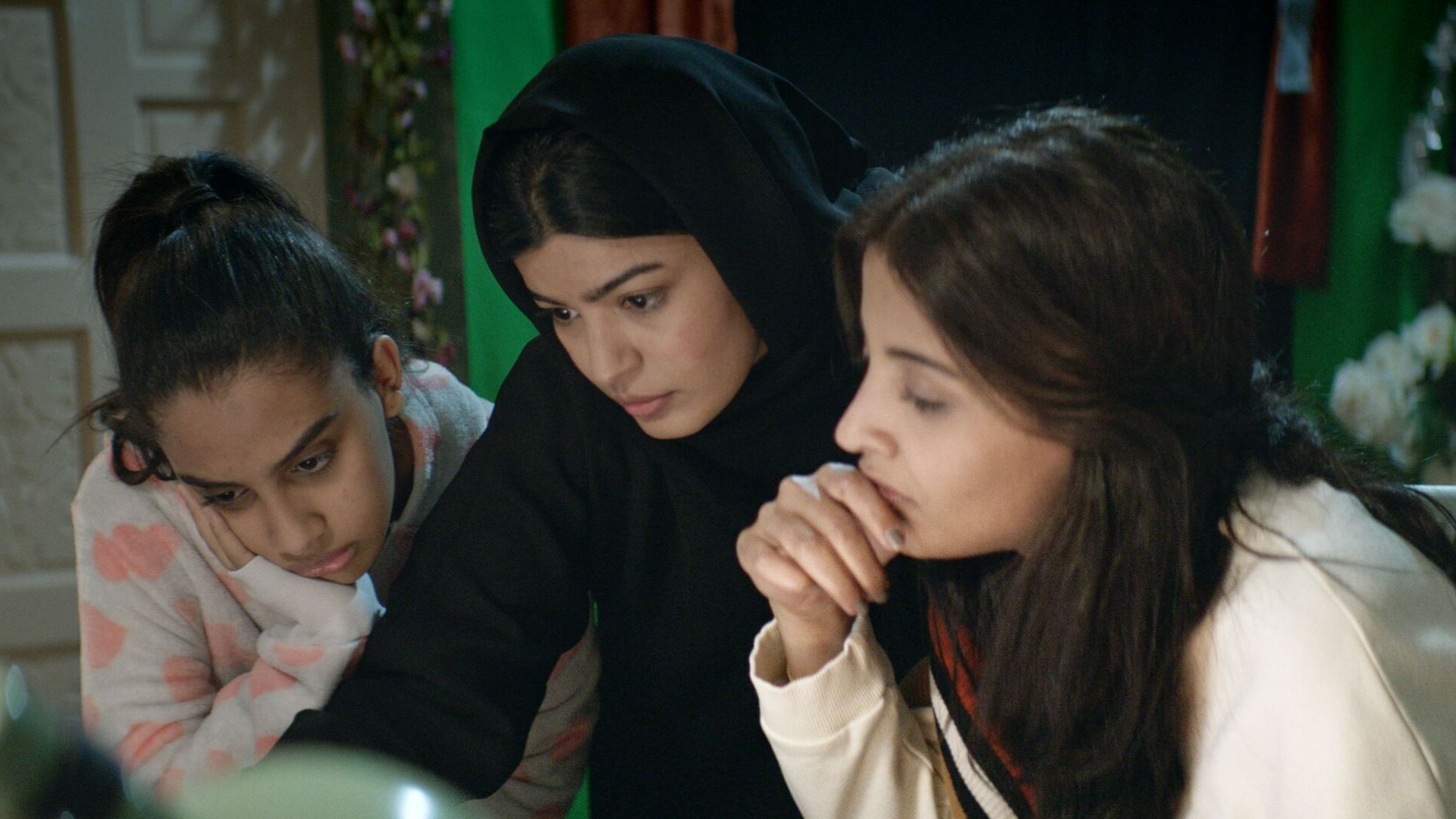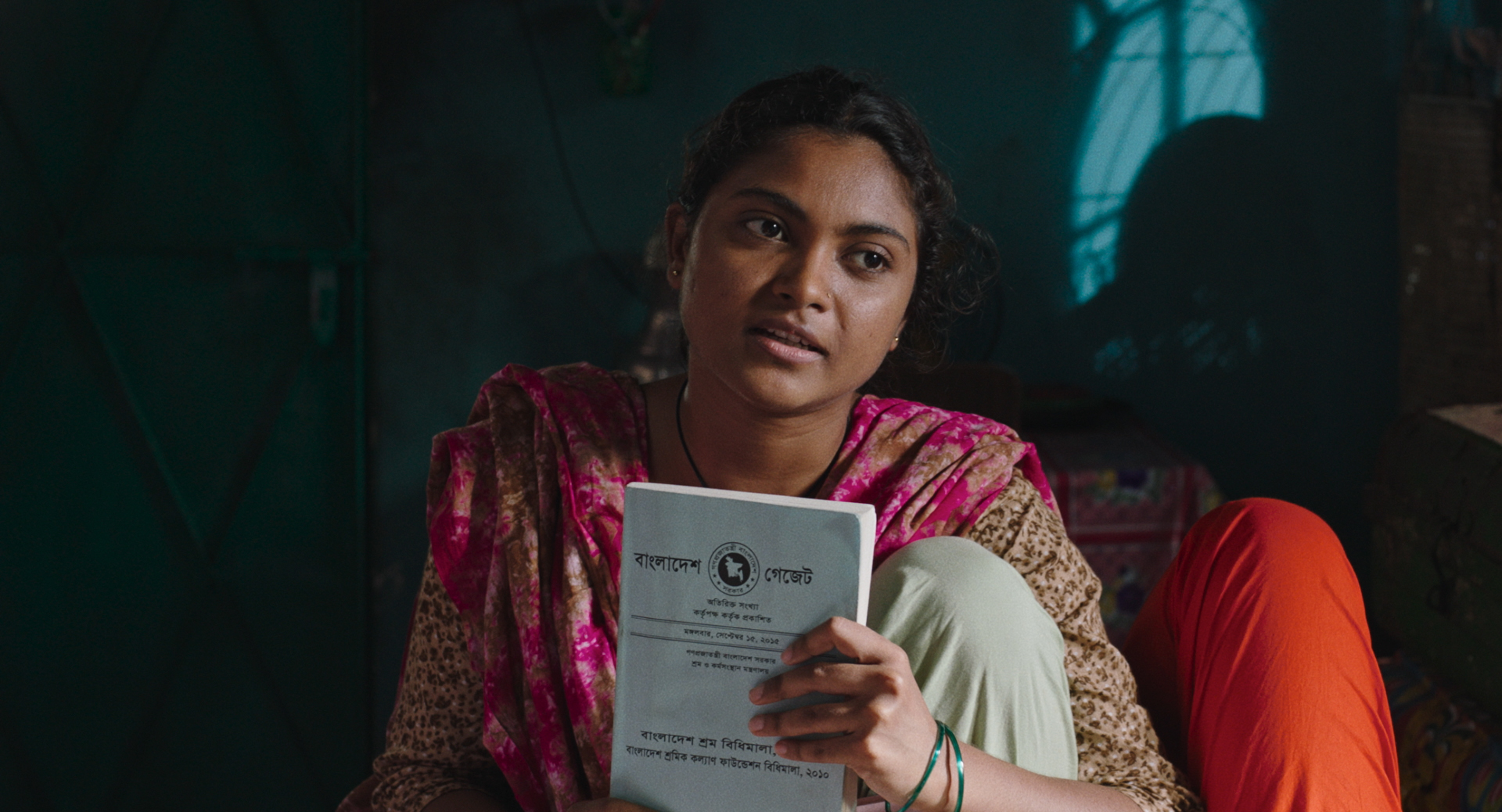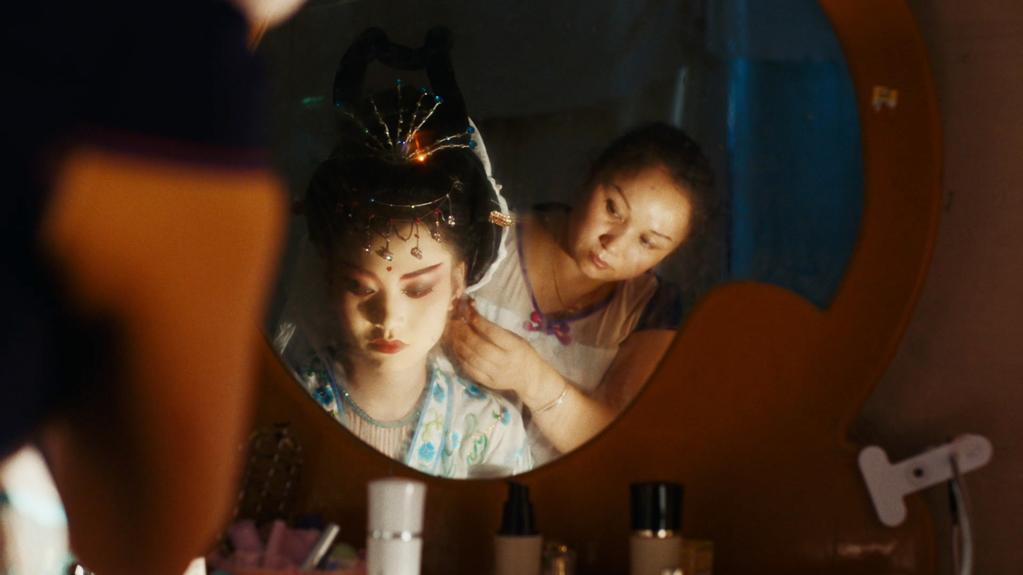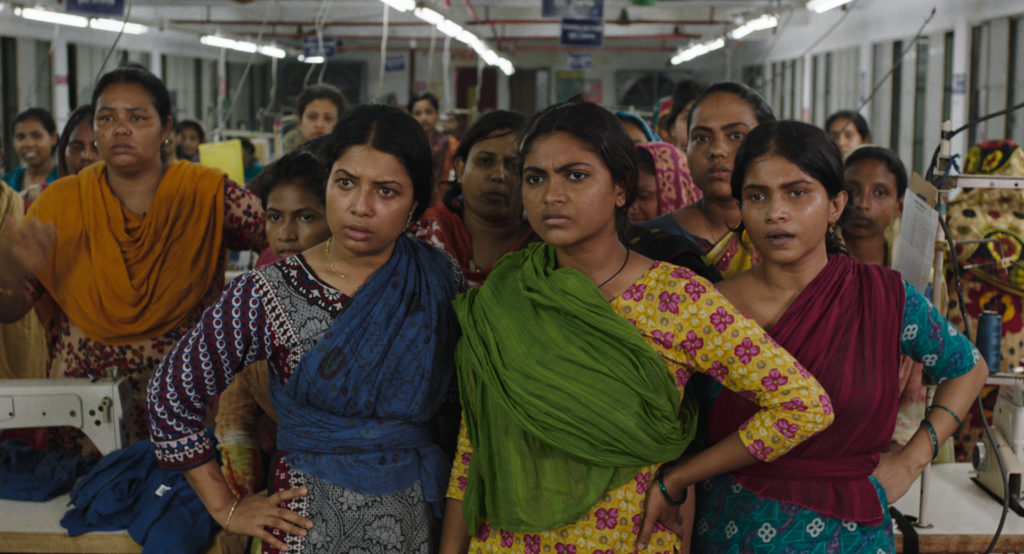In the world cinema offerings that were available at the 63rd BFI London Film Festival earlier this month, a clear theme began to emerge: female protagonists fighting for their communities.
Indeed, the role of women both behind and before the camera was the focus of much conversation across the festival, with high-profile films such as Céline Sciamma’s period lesbian romance “Portrait of a Lady on Fire,” and Sarah Gavron’s London-set portrait of female friendship “Rocks” generating buzz, while female directed-films won two of the festival’s four competitions.
Early press releases boasted 60 percent of films in competition were directed or co-directed by women, and a number of events allowed members of the public, and delegates alike, to engage more directly in the discussions surrounding gender that have become more widespread in recent years. A talk from filmmaker Nina Menkes (“Queen of Diamonds”) was free to attend, with Menkes sharing a number of film clips that demonstrate the systematic way that shot design objectifies women. Elsewhere, an industry panel hosted by critic and screenwriter Kate Muir featured writers Theresa Ikoko (“Rocks”), Charlie Covell (“The End of the F***ing World”), Claire Wilson (“Rocks”), Nida Manzoor (“Lady Parts”), and Moira Buffini (“Harlots”) speaking on the subject of female authorship.
And what of the aforementioned films about women activists? Projects from Saudi Arabia, Bangladesh, and China respectively stood out in the program for their shared narrative similarities, and for each presenting a lead female character fighting for the wellbeing of her community.
In Haifaa Al Mansour’s “The Perfect Candidate,” Maryam (Mila Al Zahrani), a young Saudi doctor, runs for office in a local election, in order to improve the poor road infrastructure surrounding the clinic she works at. Rubaiyat Hossain’s “Made in Bangladesh” portrays a young clothes factory worker, Shimu (Rikita Nandini Shimu), who tries to organize a union to protect the rights of herself and the women she works with. And in Johnny Ma’s “To Live to Sing,” Zhao Li ( Zhao Xiaoli) struggles to keep her Sichuan opera troupe from falling apart in the changing landscape of gentrification in China. Each of the women faces societal or bureaucratic pressures in their fight for change, with their strength of will tested by the challenges thrown at them.

“The Perfect Candidate”
In a recent interview with Women and Hollywood, Al Mansour explained that Maryam “is not a rebel for the sake of rebellion — she is someone that knows that her work can make the country a better place and simply wants to remove the barriers that keep her from accomplishing her mission.” Rather than devote time to Maryam’s political opposition, the film instead highlights how societal attitudes pose a risk to her campaign. Local men frequently dismiss her as “not a serious candidate,” interviewers expect her to speak on “women’s issues” rather than the practical topic she has built her platform around, and while other women tell her they like what she has to say, they mention in the same breath that they don’t vote — or that they need to convince their husband for permission to do so.
While Maryam’s teenage sister Sara (Nora Al Awadh) is embarrassed by her increasing publicity, their wedding photographer sister, Selma (Dae Al Hilali), and musician father, Abdulaziz (Khalid Abdulraheem), are more supportive, empowering Maryam to find the confidence to be outspoken about what she wants, and to defy antiquated customs for the benefit of her community.

“Made in Bangladesh”
In “Made in Bangladesh,” Shimu’s fight is for the community of women she works with, in a workplace where they are endangered by poor safety procedures, and abused and belittled by managers. Her fight begins when she encounters Nasima Apa (Shahana Goswami) from a women’s rights organization, who uplifts and empowers her to demand fairer treatment in the factory. The plot is topical, as the matter of Bangladeshi workers’ rights is often in the news. Interestingly, Shimu’s narrative is as much about education as it is about the workplace; she and her peers know nothing of the labor laws that could protect them, and thus are easy to exploit.
Shimu faces opposition at home — from her husband, who feels insecure about his own lack of employment — and in the workplace, where her bosses catch wind of the attempt to unionize, and other workers fear retribution. In the film’s press materials, co-writer and director Rubaiyat Hossain explains what motivates Shimu to stay on her path, despite the many pressures: “even with very little pay, difficult conditions at work, [and] struggles against patriarchy at home, these women are empowered, because 100 years ago in Bangladesh, women could not even work; they had to live in seclusion.”

“To Live to Sing”: Image X Production
Zhao Li’s fight to preserve her opera troupe in “To Live to Sing” appears at first to be a more personal struggle. The group faces dwindling audience numbers as a result of declining cultural interest among younger generations, and their ramshackle theater building is under threat of demolition. And so a frustrated Zhao Li lashes out at easy targets such as her niece, and the mysterious man in costume who appears to her like a portentous apparition.
Yet it soon becomes apparent that the troupe members, having lived and worked together for many years, have become a family of sorts, and their daily shows provide the only opportunity for communal experiences for many of the elderly members of their increasingly gentrified Chengdu neighborhood. Zhao Li’s desperate fight for the opera troupe is not just for the sake of keeping her livelihood but also for the cultural benefit of the overlooked and forgotten members of society. In the words of writer-director Johnny Ma, “the story of Zhao Li and her troupe’s fight for their home and theater is the perfect metaphor to explore the larger theme of traditions struggling against the modern society’s change of time.”
Each portraying female protagonists from communities undergoing notable social change, these films all feature women who assume a leadership position for the betterment of their respective communities, and offer a look at the evolving place of women in different cultures around the world. With nuanced commentary on the changing role of women in both Saudi and Bangladeshi society respectively, “The Perfect Candidate,” and “Made in Bangladesh” in particular argue for their place in discussions surrounding representations of women in film.
It’s notable that while many of the female-led European and North American films on offer at the festival were either two-handers or featured a sole female protagonist amongst a cast primarily formed of men, both Al Mansour and Hossain’s films feature numerous supporting female characters, and capture the joy of belonging to a large community of women. It certainly confirms that world cinema — even from countries traditionally considered hostile toward women — has plenty to offer female audiences looking for nuanced on-screen representations. Let’s hope these films can secure the distribution deals necessary to find those audiences.







